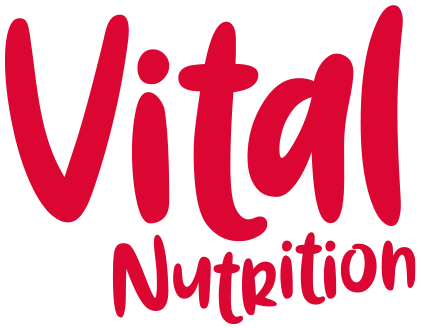Don’t cancel the carbs!
A healthy diet is all about balance. Back in the day, fat was the enemy and now carbs are getting a hard time of it.
Let’s strip it back to basics.
Carbohydrate is one of our macronutrients. The big three – protein, fat and carbohydrate are needed in abundance for good health. They all have different functions, but we need them all.
The primary function of carbohydrate is energy. We need sufficient to fuel our body and our brain.
When we think of carbs, we tend to think of starchy foods like rice, potatoes, pasta and cereals, but other sources include fruit and vegetables, pulses, nuts and seeds.
Carbohydrate is the body’s preferred source of fuel. It gets broken down into glucose that we then use as energy.
So why do some people see carbs as the enemy? Usually dietary restrictions come back to weight loss. The belief is that a low carbohydrate diet will help. The problem with this notion is that by restricting carbs, we are also limiting our intake of fibre and essential vitamins, minerals and phytonutrients.
It is estimated that only 9% of adults hit the daily fibre recommendation of 30g a day. Cancelling carbs from your diet is going to reduce this even further because carbohydrate predominately come from plant foods and if we choose the right sort, they are packed with fibre.
Let’s think about this a different way. Instead of restricting the quantity of carbohydrate in our diet, what if we had better quality carbs?
Choosing better quality carbs means that you are likely to feel fuller for longer, crave less sugary or junk food, have better energy, more balanced cholesterol, better brain function and mood, not to mention weight loss too!
In simple terms, some carbs are healthier than others.
Apart from those super healthy foods that I listed above, we also get carbohydrate from sugar, sweets, cakes and bakes, chocolate, ice cream, white bread and other refined or white starchy foods. The issue is quality, not quantity.
Quality matters!
Make the switch to higher fibre, more nutrient dense carbohydrates. This sort of food provides your body with a slow and steady release of energy.
For example: swap white bread to wholemeal, white rice to brown rice, white pasta to wholegrain. Choose oats or a low sugar granola for breakfast, replace bread with wholemeal pittas, rye bread or oatcakes at lunchtime. Use wholegrains with dinner.
The additional fibre in these low GI, high fibre foods will fill you up, so that by choosing better quality carbs, you will automatically be changing the quantity of carbs in your diet.
Almost every food we eat has some form of carbohydrate.
Here are some decent sources:
Wholegrains like barley, brown rice, wholewheat, oats, rye, buckwheat, quinoa
Pulses: peas, beans and lentils e.g. chickpeas, red kidney beans, edamame beans
All fruit and vegetables
Nuts and seeds like almond, walnuts, hazelnuts, chia, flax, pumpkin seeds
Check out the labels on the food you buy. Aim for a fibre level of 6g or more and a sugar hit of 5g or less and then you are onto something. This balance will mean you are choosing a low GI, fibre rich, slow release, healthy carbohydrate source.
White, refined and high sugar carbs are the problem, not the wholegrains. We have come to see white stuff as a normal part of our diet. Pancakes, soda bread, mashed potatoes, sweets and sugar. This is the stuff we should be eating less of, not going on a crash diet to cut the carbs.
How much is enough?
As a general guide, aim for about a fist-sized portion of carbs on your plate.
The amount of carbohydrate we need varies from person to person, but as a rough guide, around 45-65% of our daily calories should come from carbohydrates.

